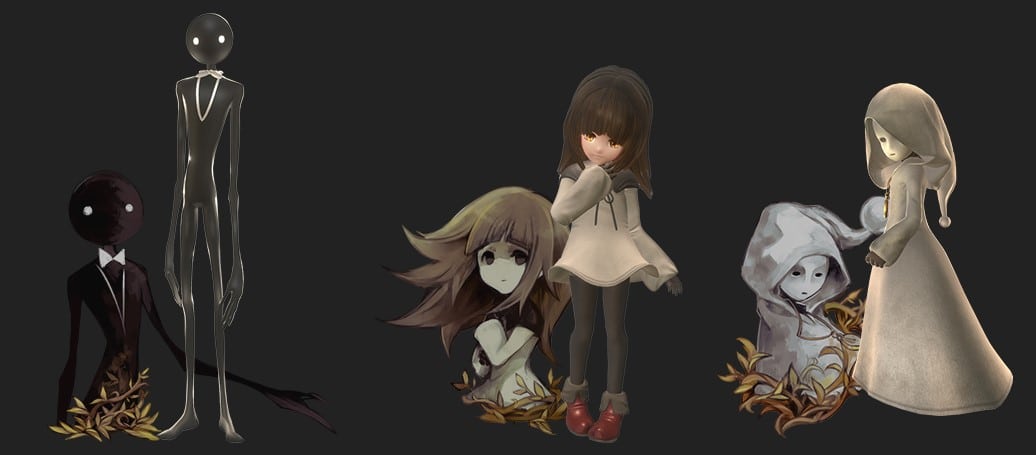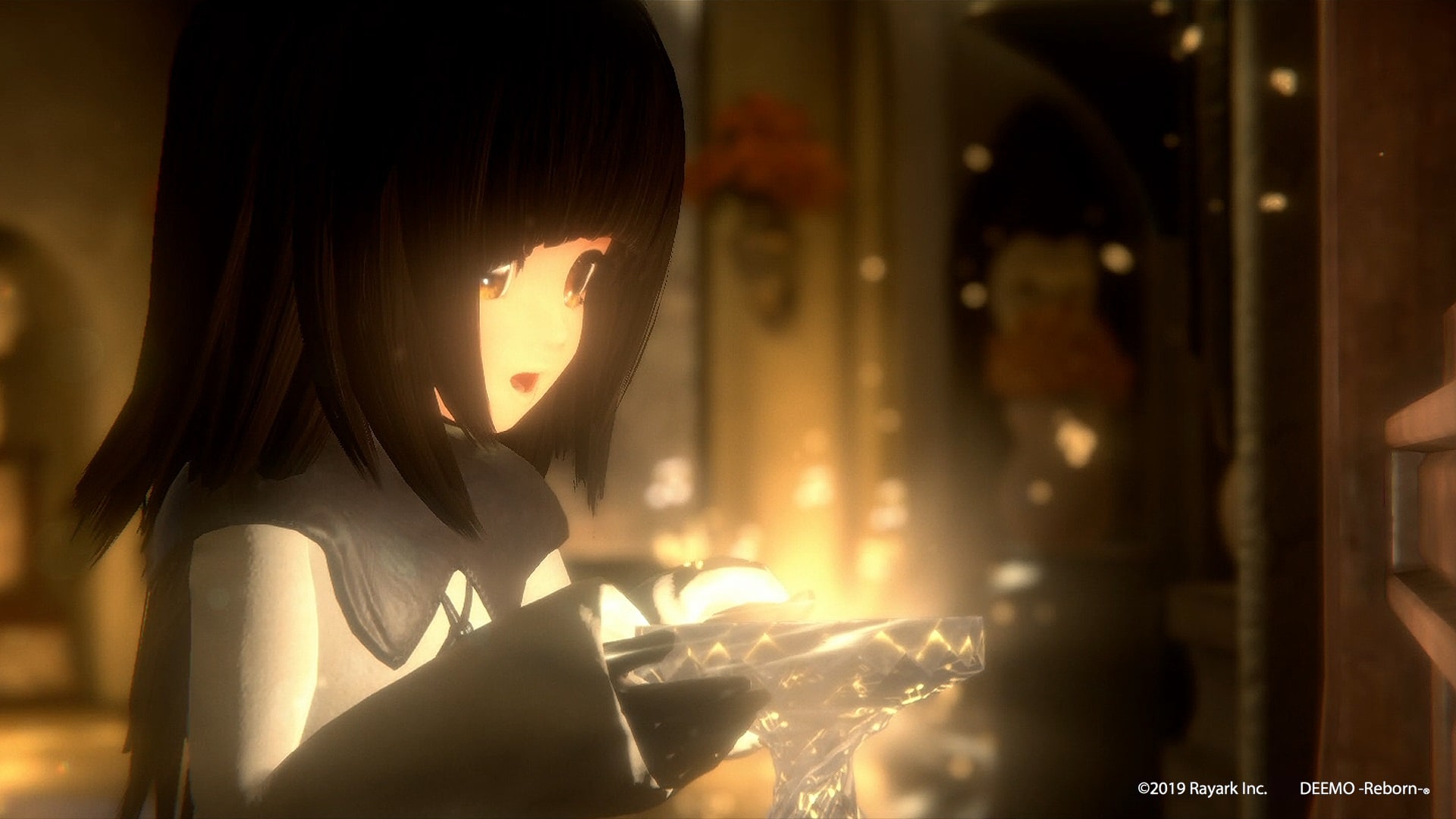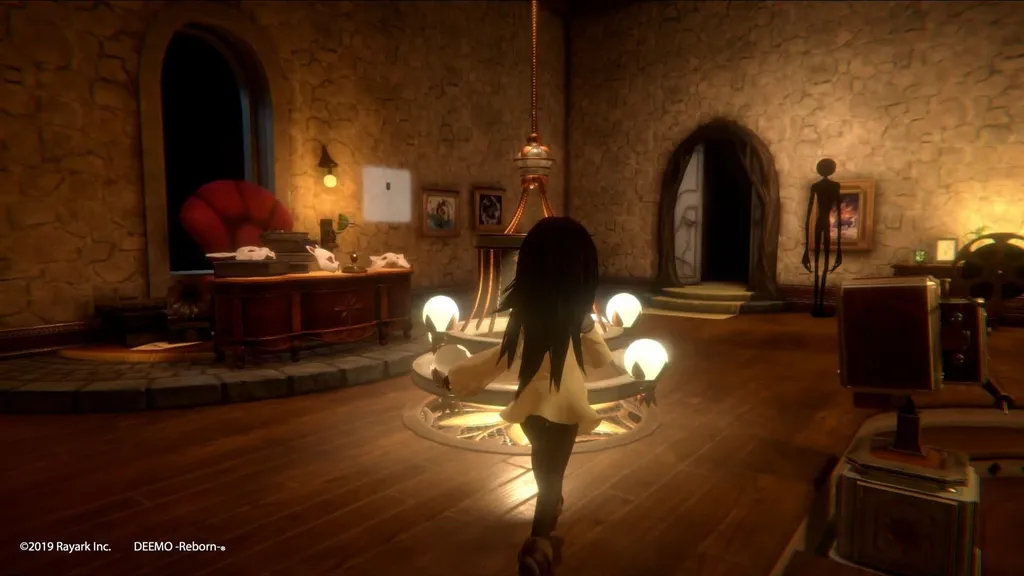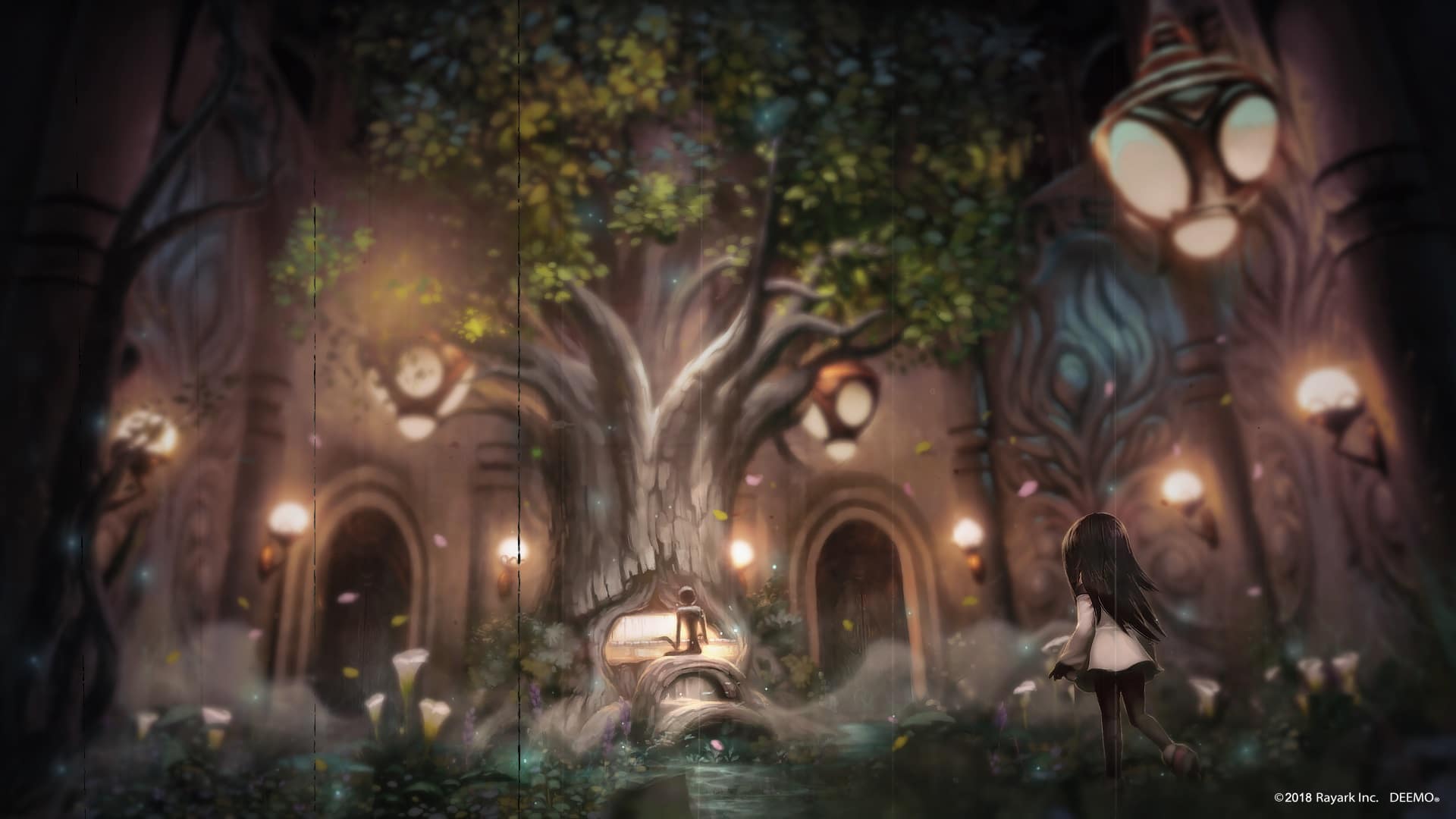Deemo Reborn is a rare type of game that melds a captivating (and surprisingly deep) story with rhythm-based music mechanics in an immersive VR adventure. Read our full review below!
The world of virtual reality is no stranger to rhythm games, but not many come with a story as surprisingly deep as Deemo Reborn does, which keeps you playing to uncover its secrets for extended play sessions.
Where other virtual reality rhythm titles present faster-paced, more current song titles combined with backgrounds that attack the senses, Deemo Reborn instead offers players a more relaxed musical selection. Luckily, this fits with everything about Deemo Reborn’s world, and leaves you with a sense of appreciation when all is said and done.
For those who might be thinking that Deemo sounds familiar, it’s because you might have played it before. Originally released in 2013, Deemo was a mobile title that turned your photos into pianos, and followed a simple format similar to that of other mobile rhythm games. Developer Rayark and publisher Sony Music Entertainment Japan label UNTIES have since been working hard on remaking the game from the ground up, and incorporated much more to do with Reborn.
Deemo Reborn’s story is a pretty simple one, but unfolds to reveal a surprisingly deep and heartfelt tale about family. The game stars Alice, a little girl who is lost in a magical world inhabited by a Slenderman-esque looking creature called Deemo. The main objective of the story is to return Alice home, and this is completed by playing music, which in turn grows a tree in the space that you’re stuck in. You could finish the main story in a couple of hours, but like any music game it earns its stripes on the depth of its replayability beyond a first playthrough.

In between playing songs, you’re able to explore the area that you’re in, and by completing more songs you can start to unlock more areas, which open up the story a bit. Where the original games had a heavier focus on just playing through songs, Rayark has done an incredible job of expanding Deemo Reborn in the remake, including the incorporation of more puzzle-solving opportunities that didn’t exist prior. While they may not be the most difficult to solve challenges, it’s nice to see the game expand a bit from a simple rhythm title to include more of an adventure game vibe.
The gameplay in Deemo Reborn is where things began to stand out, in terms of the game being a remake. Similar to the original, selecting a song transports you into a sort of visualizer that displays your progress in the song, a combo meter, as well as some other in-game decorations and objects that fit along with the story.
Where the original game had you tapping on notes as they appeared on a phone screen, Deemo Reborn has you literally using your hands to play, with the PSVR placing you right in front of the keys of a piano. Using the PlayStation Move controllers (which act as your hands), you play the song’s notes much like you would on a piano, pressing down on them as they scroll by the keys. Later songs found in the game often incorporate many more instruments, but the way you play through songs doesn’t change all that much.
It takes some time to get used to, but is actually an extremely easy way to play, no matter which of the three difficulties – Easy, Medium, Hard – you play on. However, due to the PSVR’s field of view, you’re going to have to pay closer attention to exactly where you’re striking notes. During a handful of playthroughs of songs on a harder difficulty, I missed tons of notes simply due to the game not registering my hit on a certain key in my periphery. It’s tricky to get the hang of and can be unforgiving if you’re trying to learn, but does work well once you do.

Should you want to sit back and play without the use of virtual reality, Deemo Reborn also sports a TV mode, although there are some downsides. While the game looks and handles very well outside of the PSVR, playing through songs is a lot harder. Instead of simply using your hands, you’ll be using the PlayStation 4’s DualShock 4 controller, and will be utilizing six of the controllers buttons on it to play songs. Playing through tracks – even on Easy mode – becomes much harder this way, and as you start to explore some of the more difficult selections it becomes a true test of just how fast your fingers are on a controller.
As far as the music is concerned, the track selection for Deemo Reborn won’t feature any well-known hits, but the soundtrack is filled with enough variety to leave anyone happy. Because you’re playing on a piano, most of the tracks lean heavily on the keys, and once you get into a groove, it’s easy to lose yourself in the feeling of a song, which is the sign of any good rhythm game.
Deemo Reborn Review: Final Verdict
When it comes to virtual reality and the rhythm genre, there might be better options out there. However, not many (if any at all) will allow you to experience a complete narrative while you play the game, and even fewer also give you the opportunity to explore a 3D environment – complete with puzzles – in between songs. While many might be playing Deemo Reborn for just its rhythm roots, they’ll find a much deeper game once they jump in, and fans of any gaming genre might even be able to find something to enjoy about this title.
Final Score: 

 3/5 Stars | Just Okay
3/5 Stars | Just Okay

Deemo Reborn releases exclusively for PS4 with optional PSVR support on November 21st for $39.99. You can read more about our five-star scoring policy here.



























